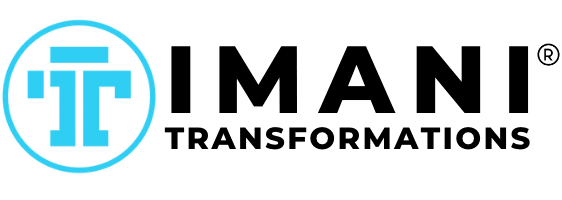If you want to lose a few kilos or even more, the first thing you probably think of doing is going on a diet. After all, you’ve probably done a few before and managed to lose weight on them. You just ended up falling off the wagon which meant that you ended up gaining some (or even all) of the weight back, right?
But is going on a diet the best solution?
Of course, the diet industry will tell you it is. Every day, we’re bombarded with different weight loss ‘solutions’ on our social media feed — whether it be an elimination diet (cutting out certain food groups), fasting (not eating food for a good portion of your day), calorie-counting (limiting and restricting food), or even ‘wellness’-based detoxes and cleanses.
But, before you sign up to the latest quick fix or fad diet, or 6- or 12-week challenge, you might want to read this.
Because we’re about to show you why doing nothing is BETTER than going on a diet.
Diets don’t work
The biggest problem with diets is that they just don’t work. Diets lead to a lot of things, but long-term weight loss isn’t one of them. In fact, scientific studies prove that as many as 98% of people who go on a diet end up gaining all the weight they lost (and more) within 5 years. You can read more about this in our blog Why diets don’t work.
Diets make you more overweight
Dieting will make you more overweight in the long run. There are two reasons for this.
- They compromise your metabolism which makes it harder for you to lose weight when you stop your diet.
- When you stop the diet, you’ll automatically go back to the same behaviours that led you to become overweight in the first place, because no diet will effectively address your keystone habits that have contributed to your weight problem.
This explains why people struggle with their weight for decades, and go round and round in circles despite going on multiple diets. You can read more about this in our blog Nothing changes if nothing changes: How to lose weight for good.
They compromise your physical health
A hallmark of diets is that they require you to restrict or eliminate food. However, in order for your body to work optimally you require a wide range of food that nourishes your body, helps boost metabolism, burns fat and strengthens your immune system. Unfortunately, when we fail to feed our body what it needs we compromise our metabolism, and weaken our immune system. Other side effects of poor physical health caused by dieting include mineral and nutrient deficiency, dehydration, constipation, hair loss, brittle hair and nails, poor skin, fatigue and inability to lose weight.
You can read more about the importance of nutrition in our blog The 14 best foods to lose weight.
They promote diet mindset, perfectionism and all-or-nothing thinking
Because the dieting industry insists you follow their diets ‘to the letter’ in order to lose weight, you’ll end up trying to be perfect. This is a strategy that will backfire, as aiming for perfection causes a great deal of stress, which only impedes weight loss. Diets cause you to develop a diet mindset, which is strongly linked to immediate results, low self-esteem, lack of flexibility and deprivation. A diet mindset is one that will cause you to struggle with your weight for years, maybe even decades because it feeds into the ‘all-or-nothing’ thinking — the belief that you need to get everything right, or there’s no point even trying; that only big changes matter, and small changes are unimportant. This often causes people to take no action at all. A better approach is to focus on making small, sustainable, consistent changes. We explain this in more detail in our blog The snowball effect: Why small things add up to big weight loss.
You will end up over-eating
If dieting guarantees you one thing, it’s that you’ll eventually engage in binge eating. This is because eating is like a clock pendulum that swings from side to side. Cutting calories and restricting food causes the pendulum to swing hard to one side — the side of restriction. But just like a clock pendulum, it can’t swing one way without coming back to the other side. When the pendulum swings back, you overeat and end up bingeing. Then, to counter the excess calories that were consumed, you restrict your food even further, which leads to more bingeing, and weight gain. This vicious cycle is explained in more detail in our blogs Why calorie deficit leads to weight gain and How to stop binge eating.
Diets cause you to fear food and feel guilty for eating
Diets are big on rules. Don’t eat this, don’t eat that, you must eat this, limit the amount of that. Diets promote the idea of good foods and bad foods — the ‘good’ foods are often those that are low in calories, while ‘bad’ foods are usually everything else! Following food rules is a recipe for disaster because it causes us to worry about and justify what we eat. Following food rules and diets causes us to feel shame, guilt or even fear around certain foods, or even eating anything! In short, we develop a poor relationship with food, and the very act of eating (something we need to do for our own survival) becomes a source of angst, worry and stress.
You’ll lose your confidence and self-worth
Diets mess with your head and cause you to lose confidence and self-worth. This is because the diet industry blames you for not being able to lose weight, even though their ‘solution’ actually causes you to gain weight. The diet industry tells you that you’re not worthy unless you’re a certain dress size because this is how they continue to sell their products. They’re not selling weight loss, they’re selling feeling worthy. And with every failed diet (which is all of them), your confidence and self-worth take another hit, because the finger is once again pointed back at you for not being ‘good enough’, or motivated enough, or strict enough to lose weight.
You can read more about the impact low self-worth has on you in our blog How low self-worth affects your weight. You can also read more about the impact diets have on you in our blog Dear diet industry … you suck!
They steal your happiness
How many times have you said ‘no’ to a social occasion or family celebration because you’re on a diet? How many times have you been out with friends and spent the whole time worrying about what you look like, how much you weigh and what you can eat? How many years have you spent not fully engaged with those around you, because diets have got in the way?
On the outside and for a short time, dieting looks like a solution to weight problems. However, any results are short-lived and for the dieter, the experience is hell on earth. The constant calculation of calories or points, watching the clock to see when they’re ‘allowed’ to eat again, worrying about being invited out to dinner, or trying to say ‘no’ to certain foods prevents the dieter from actually living a happy, fulfilled life. They live with fear, and stress and constantly worry about what they’re putting in their mouth, and wonder how others may be judging them for it.
Dieting will steal years, even decades of your life — time that you can never get back.
They’re a waste of money
The painful truth is that diets cost you money as well. Along with the diet programs and meal plans, you’re also likely to spend extra money on gym memberships, special recipe books, magazines, online weight loss subscriptions, supplements, or pills and potions that don’t work at all.
In fact, research from the UK has found that during their working life (18-60 years), the average person spends a staggering $62,500 (£31,500) on dieting — something that has been scientifically proven NOT to lead to long-term weight loss.
Over the last decade, we’ve witnessed countless fad diets and fitness trends come and go. None of them worked, but all of them left people feeling worse off than when they started.
If you’re ready to ditch the diets and learn how to lose weight for good without feeling deprived, we’re ready to help. Through our Diet Antidote Transformation System (DATSTM Program), the Not-Diet-diet, we will help you lose weight forever and build confidence without the need to diet.
Because when all the diets fail, we’re the ones people come to.


















